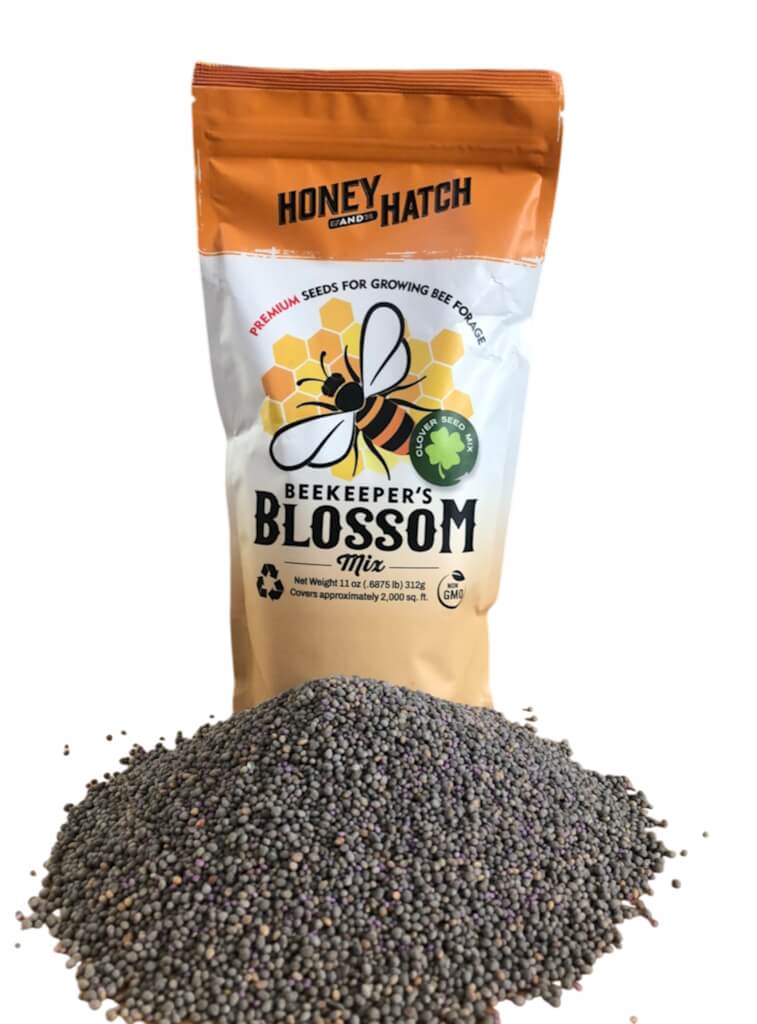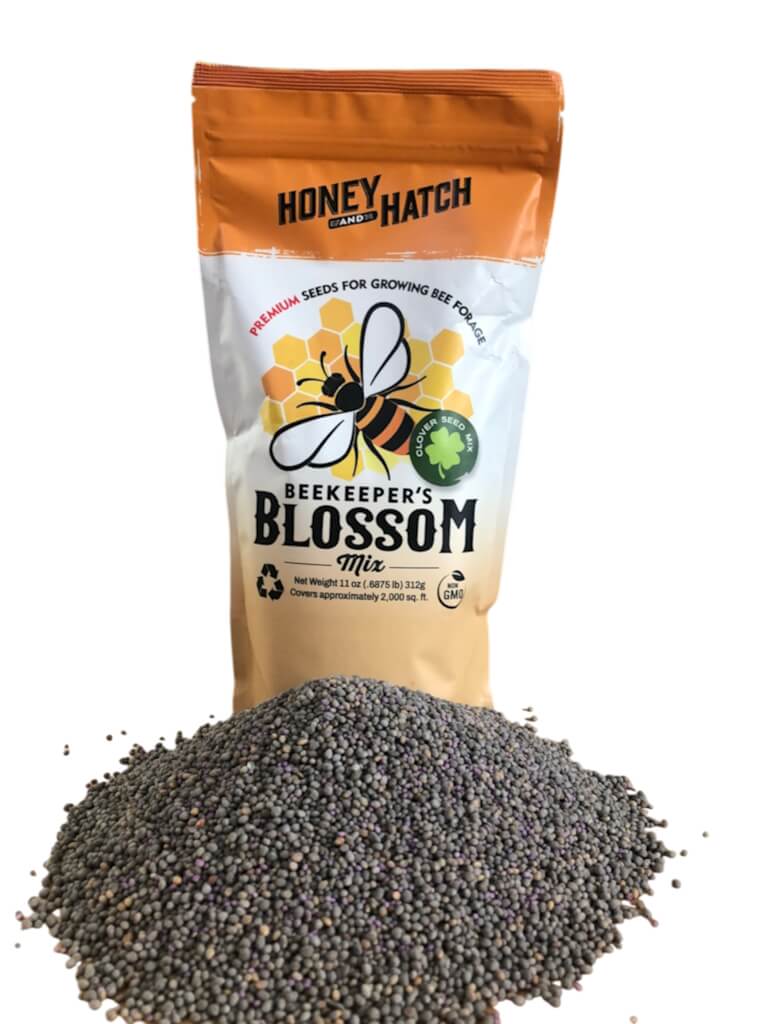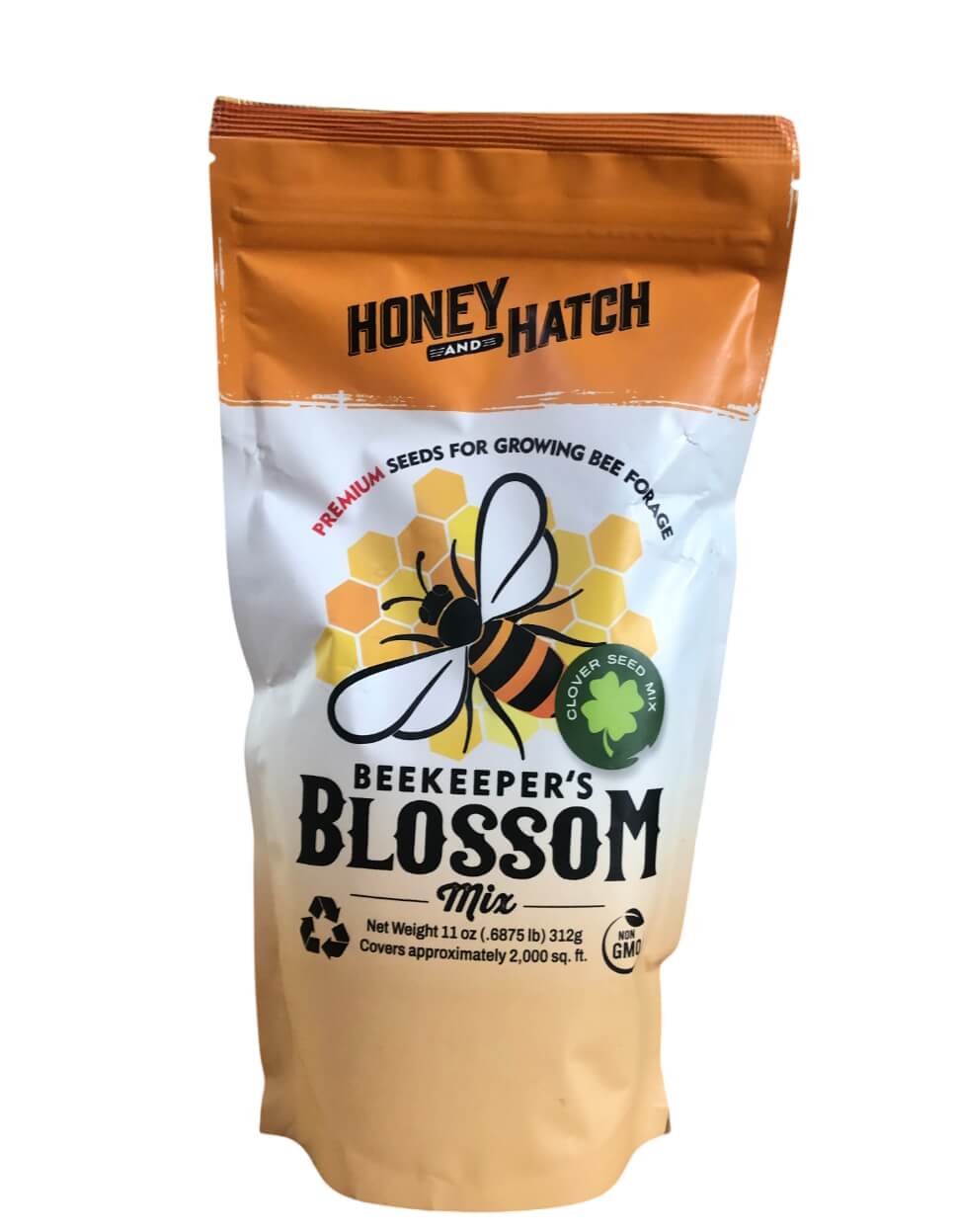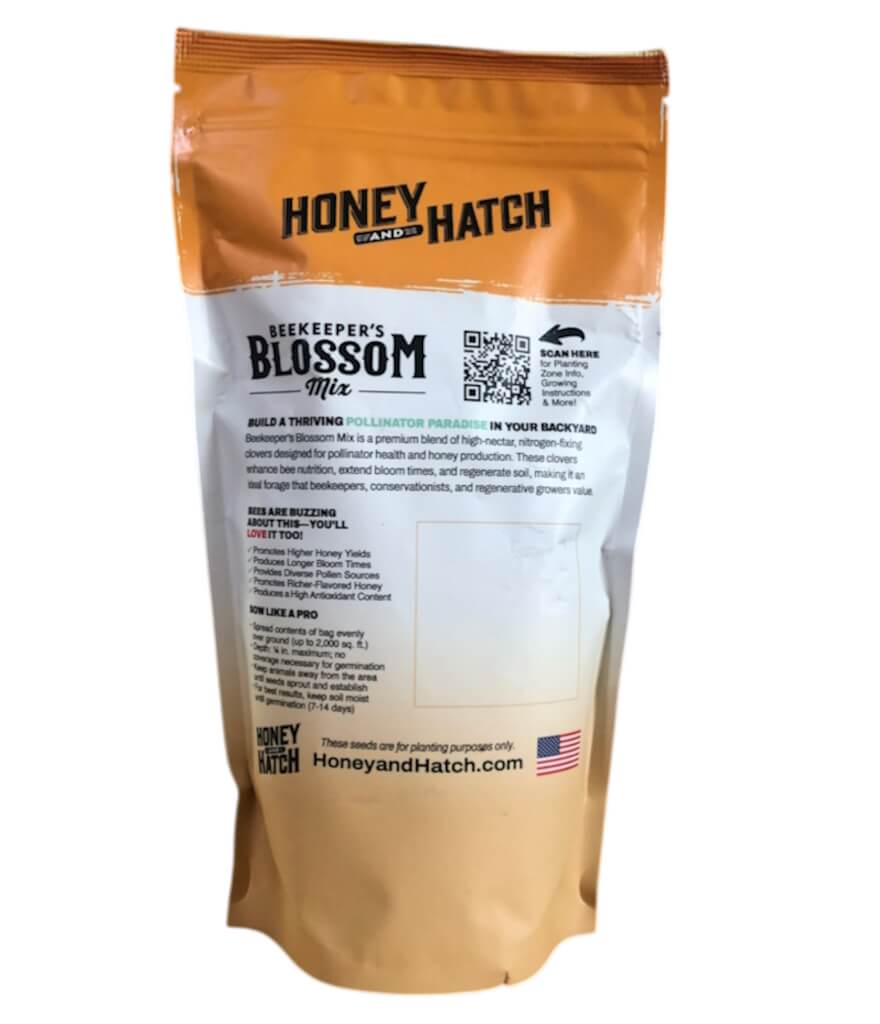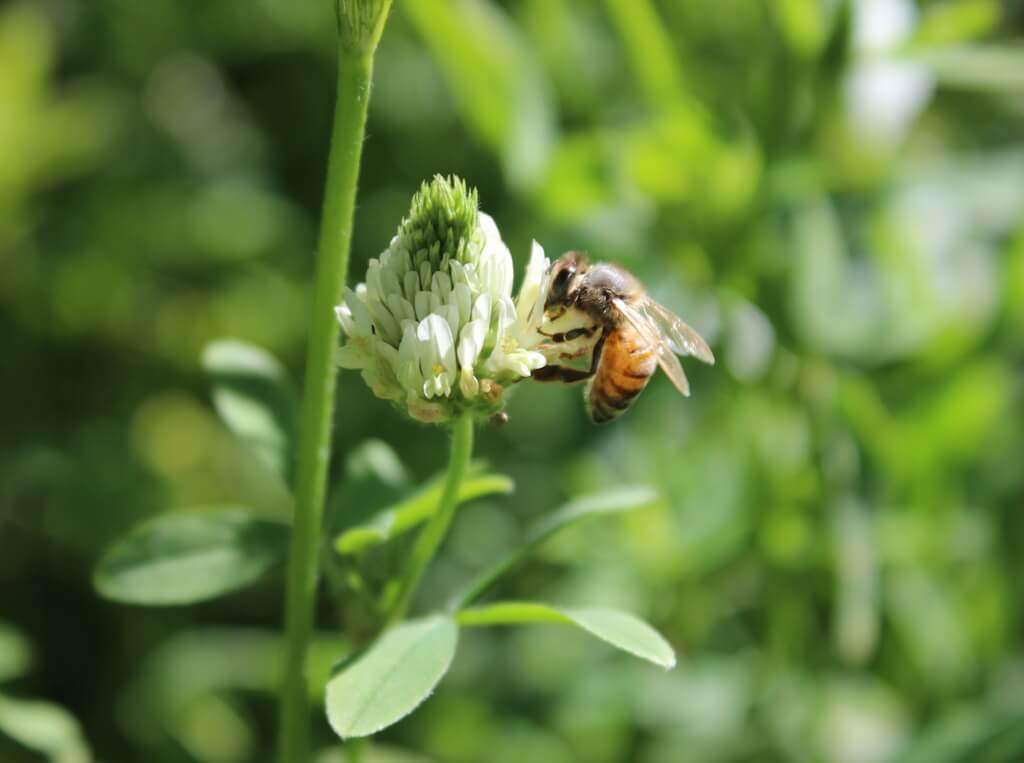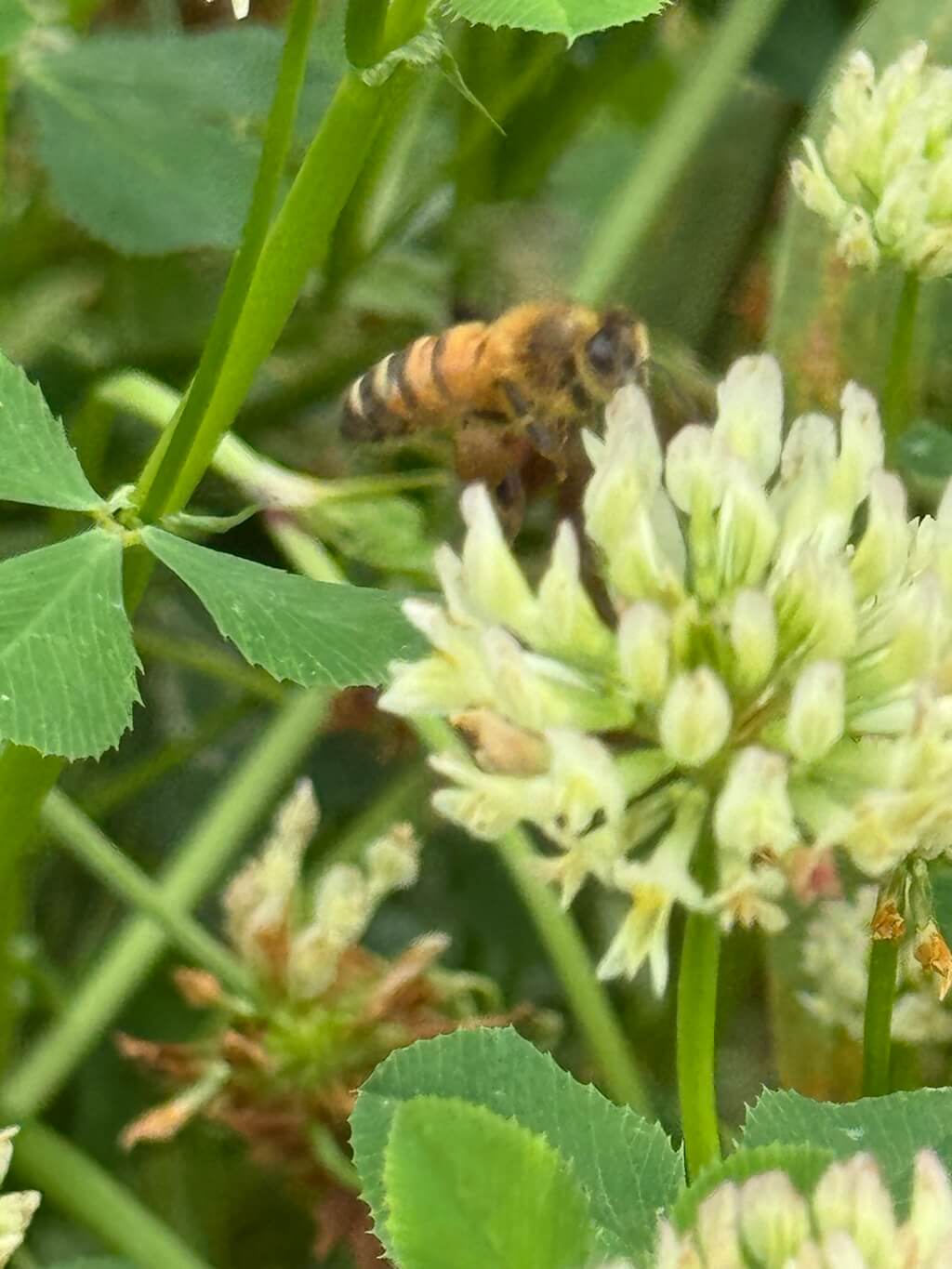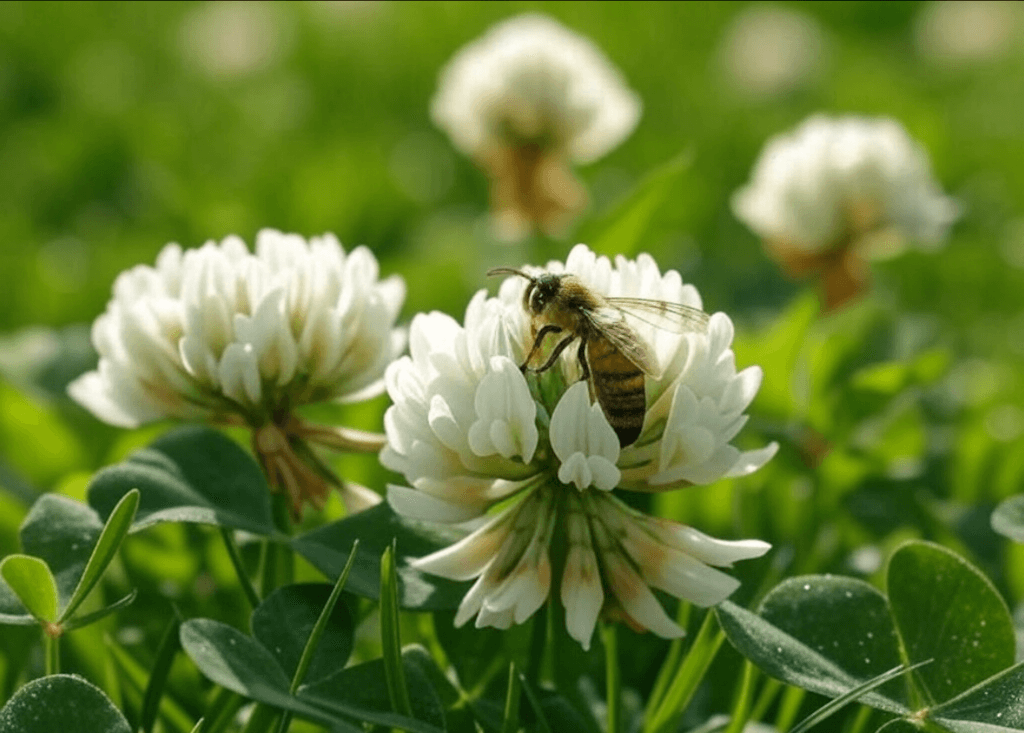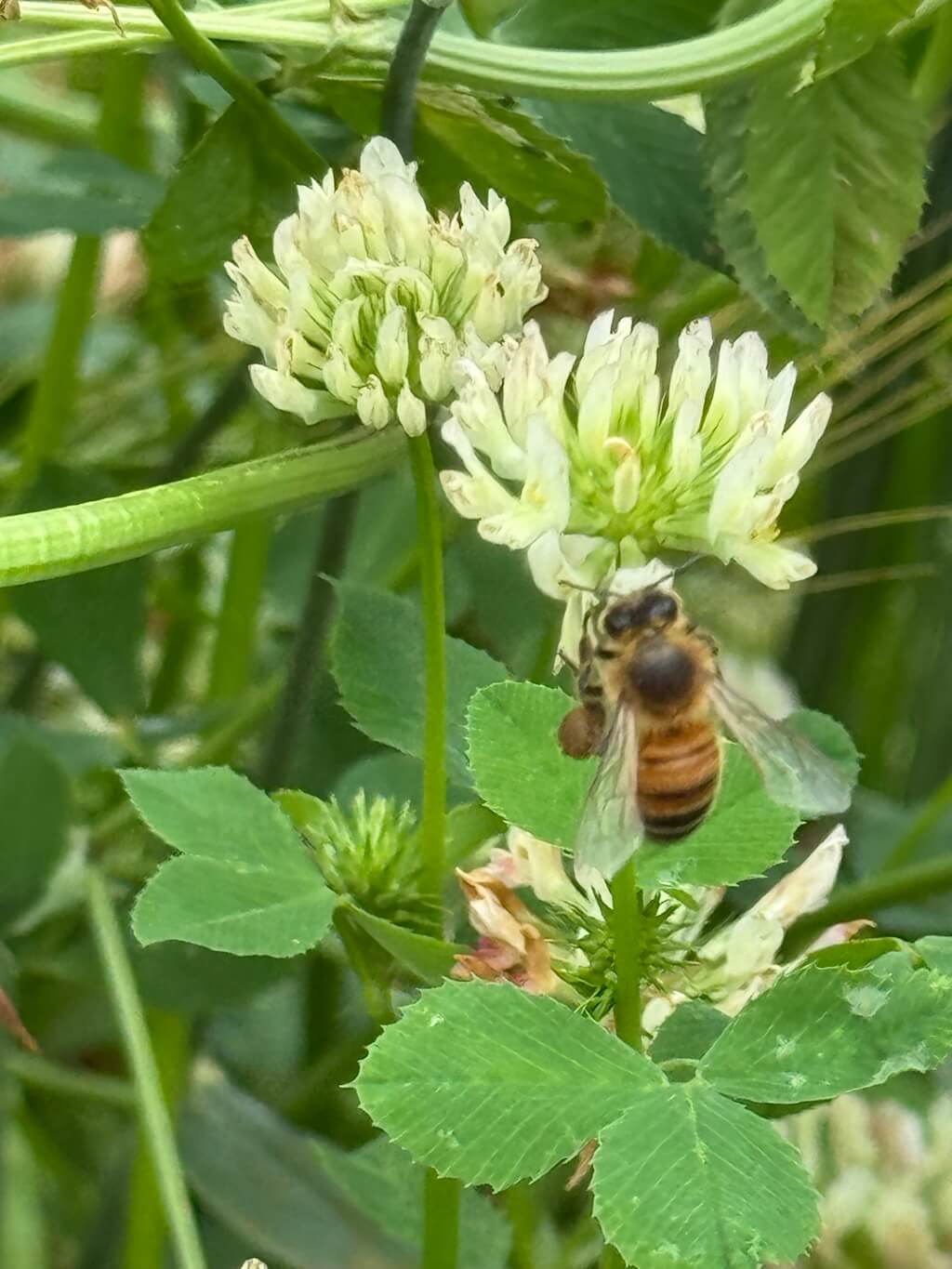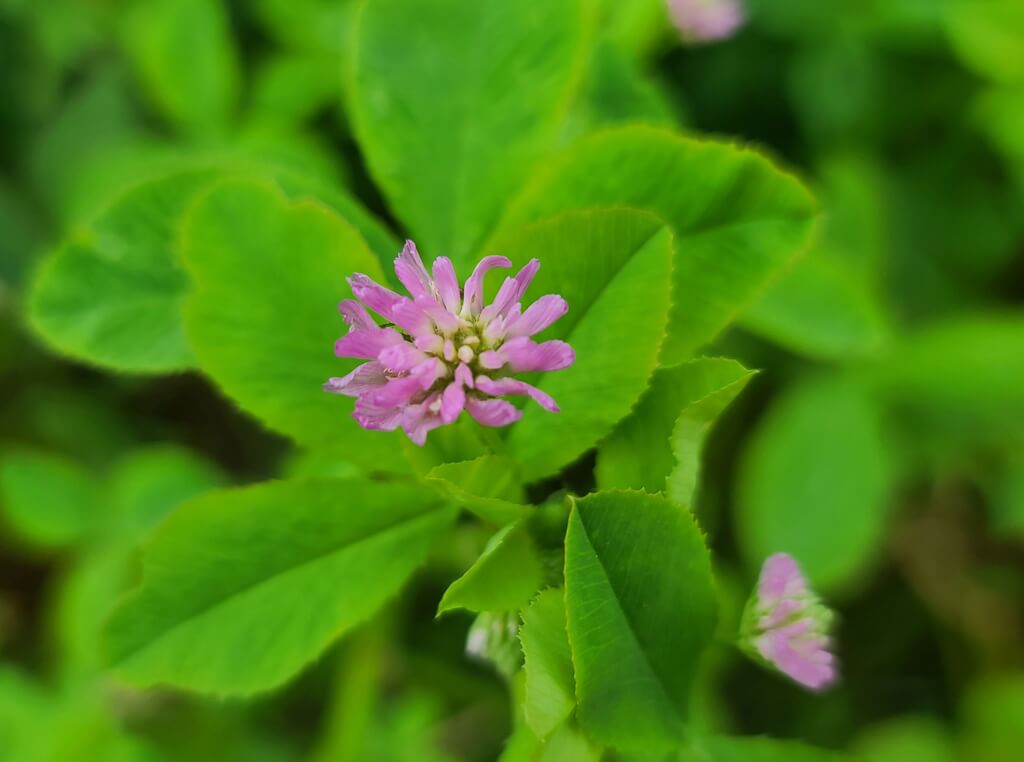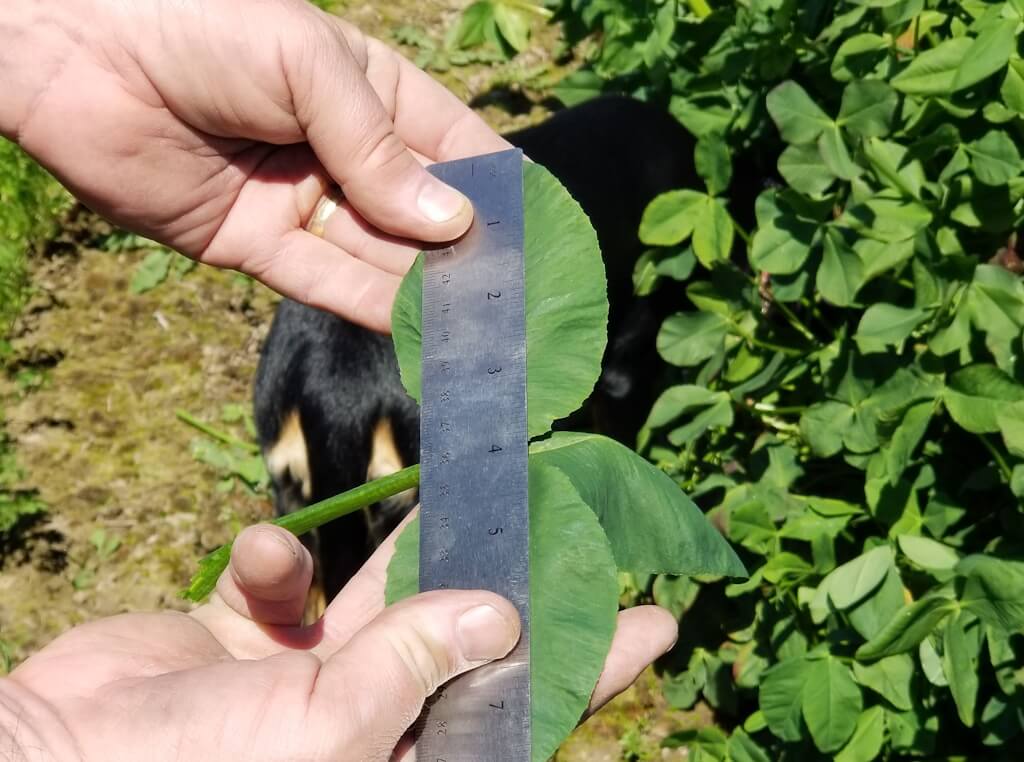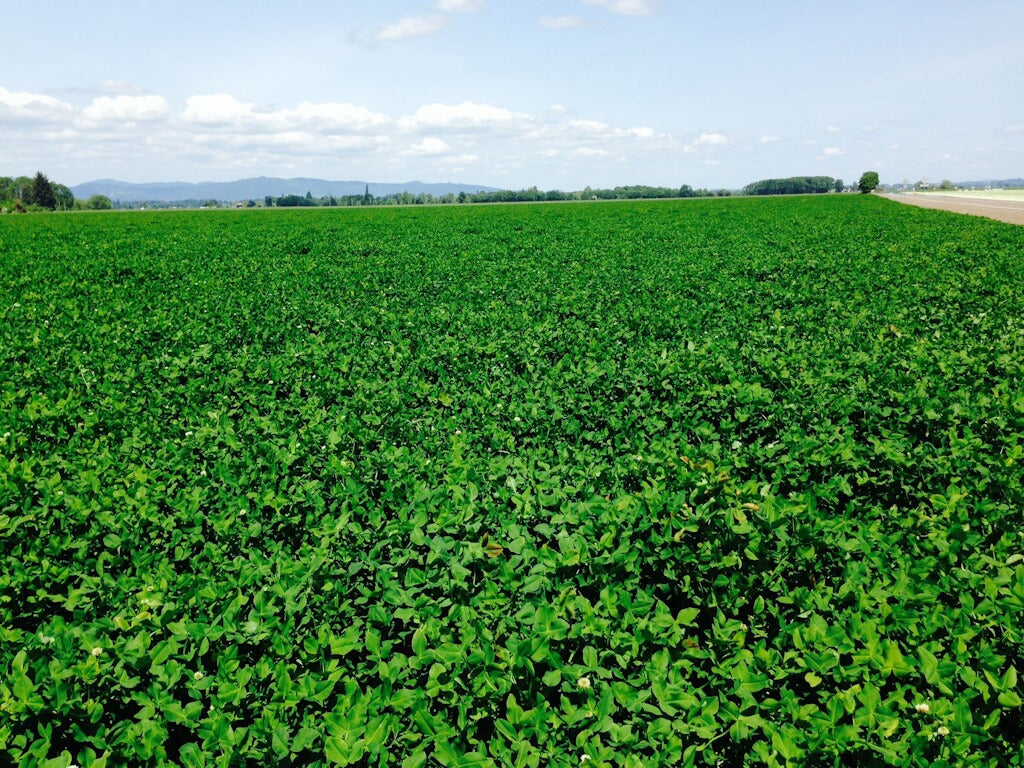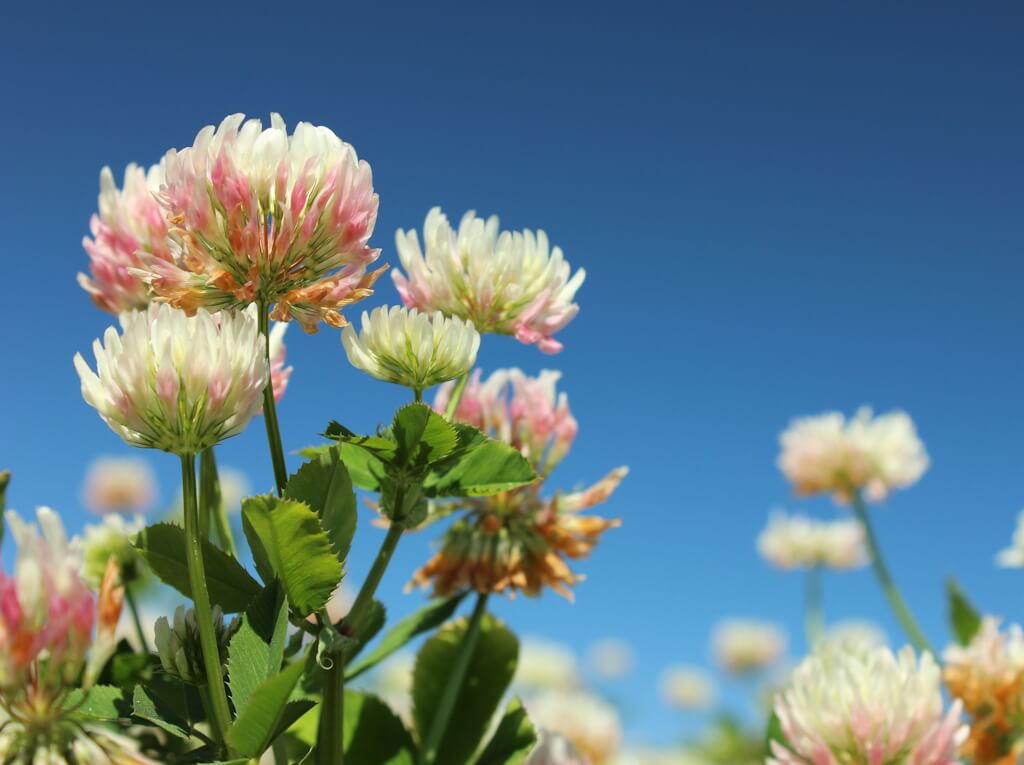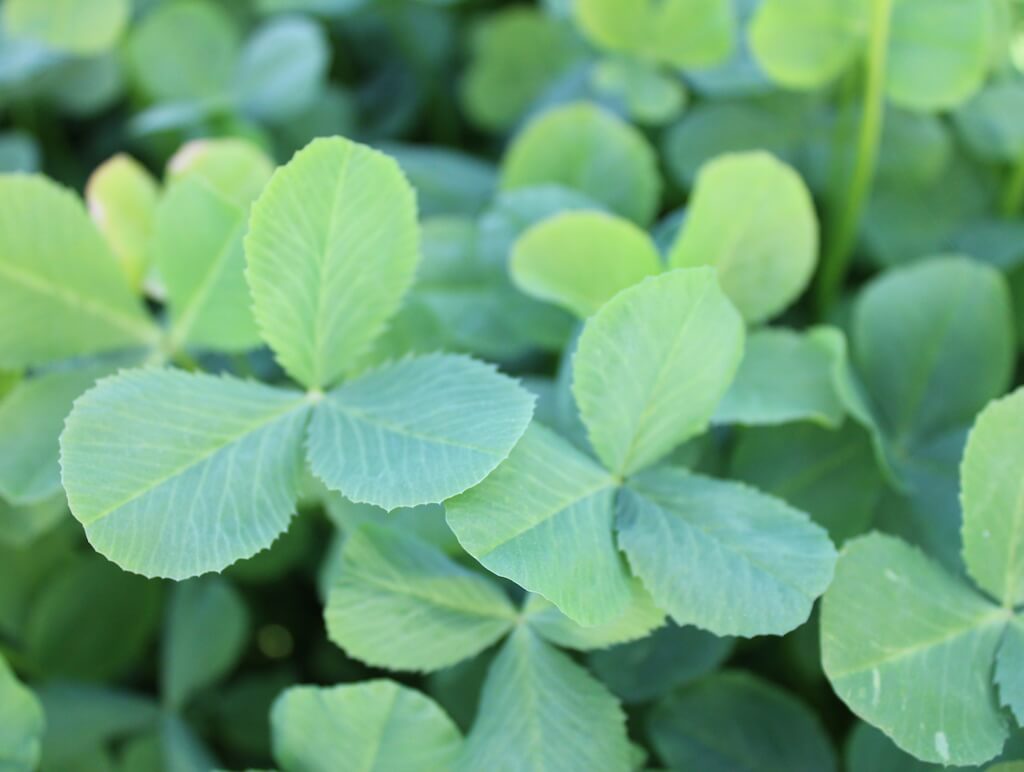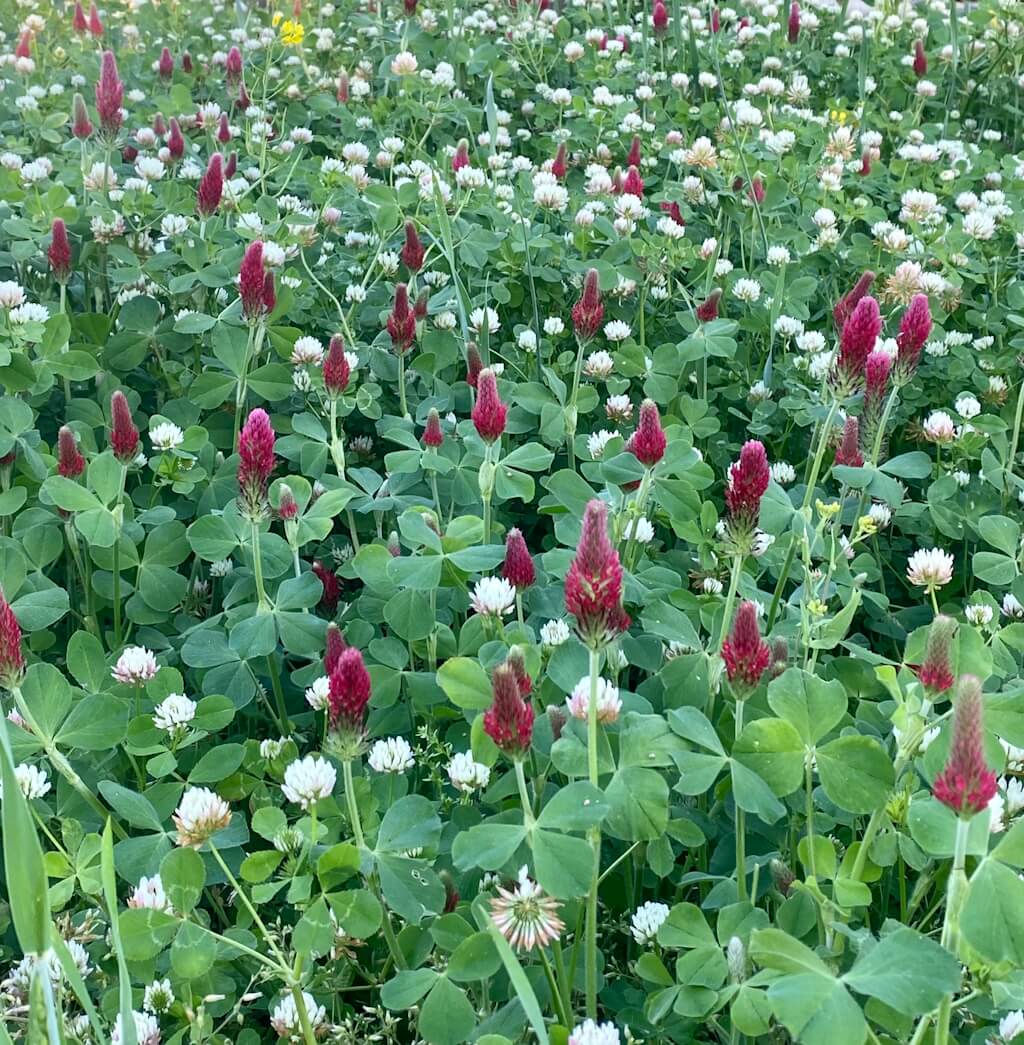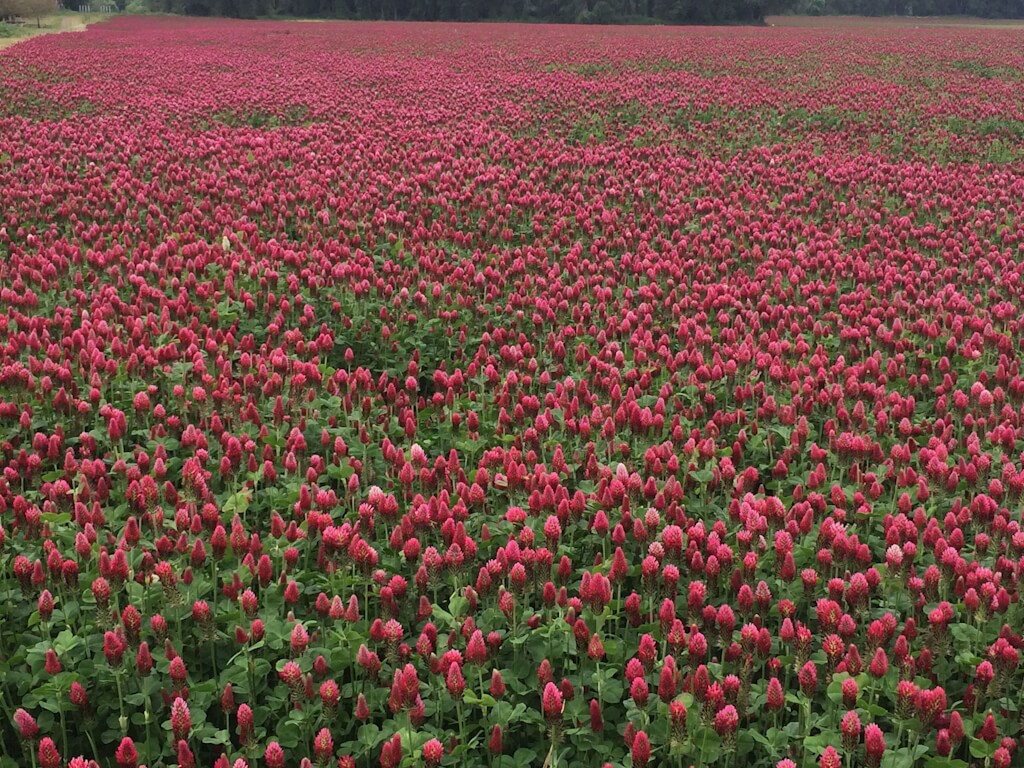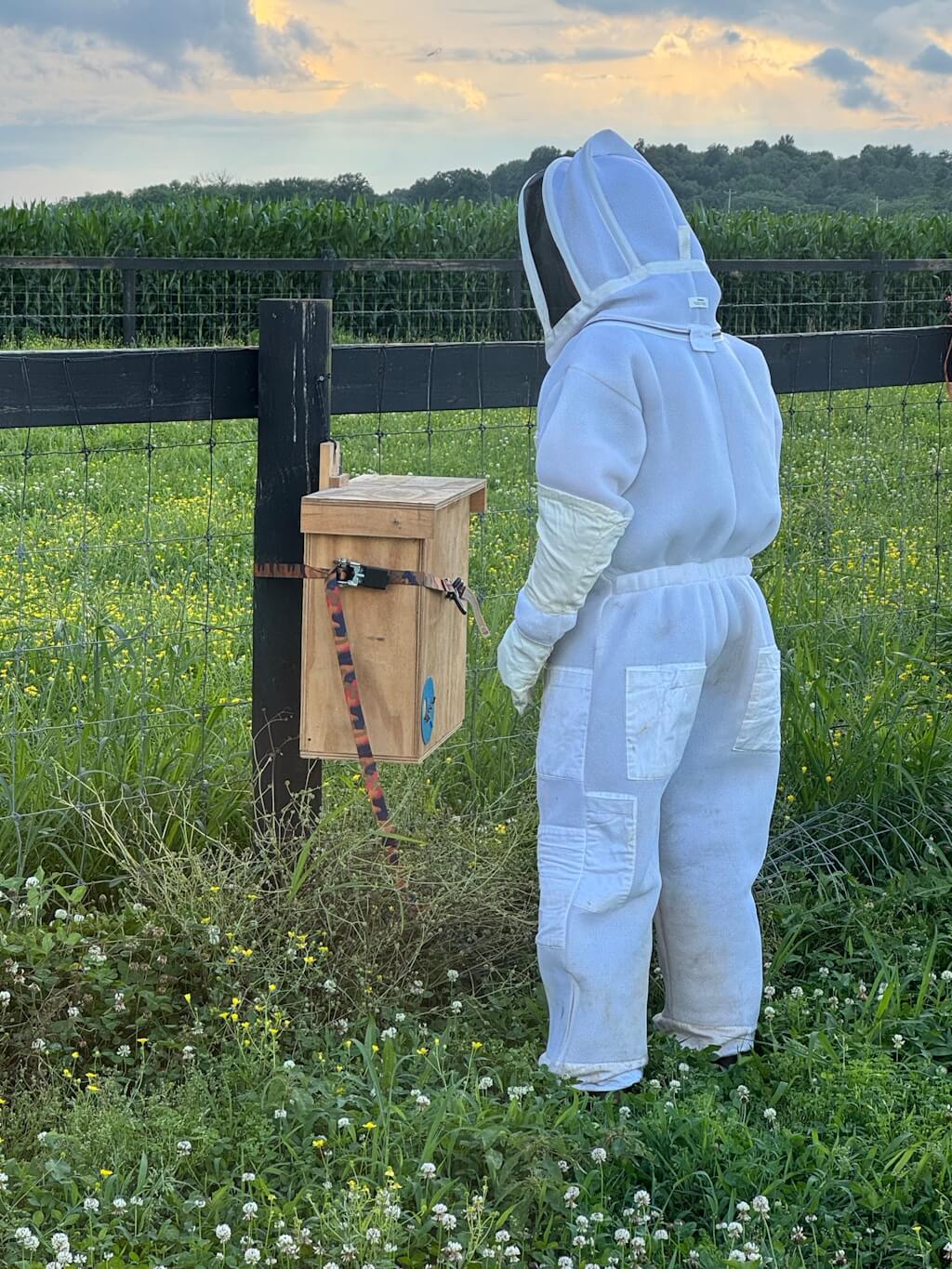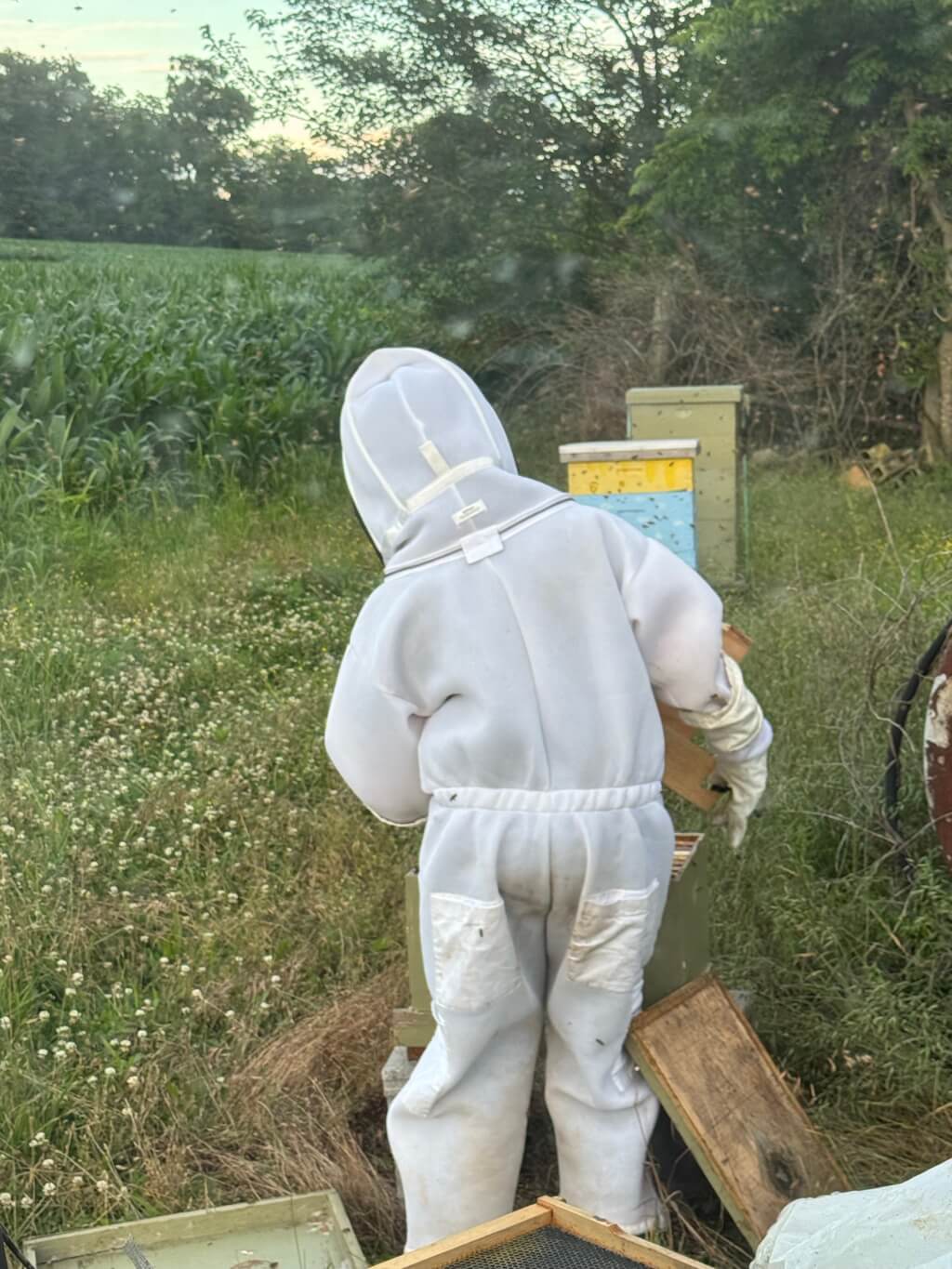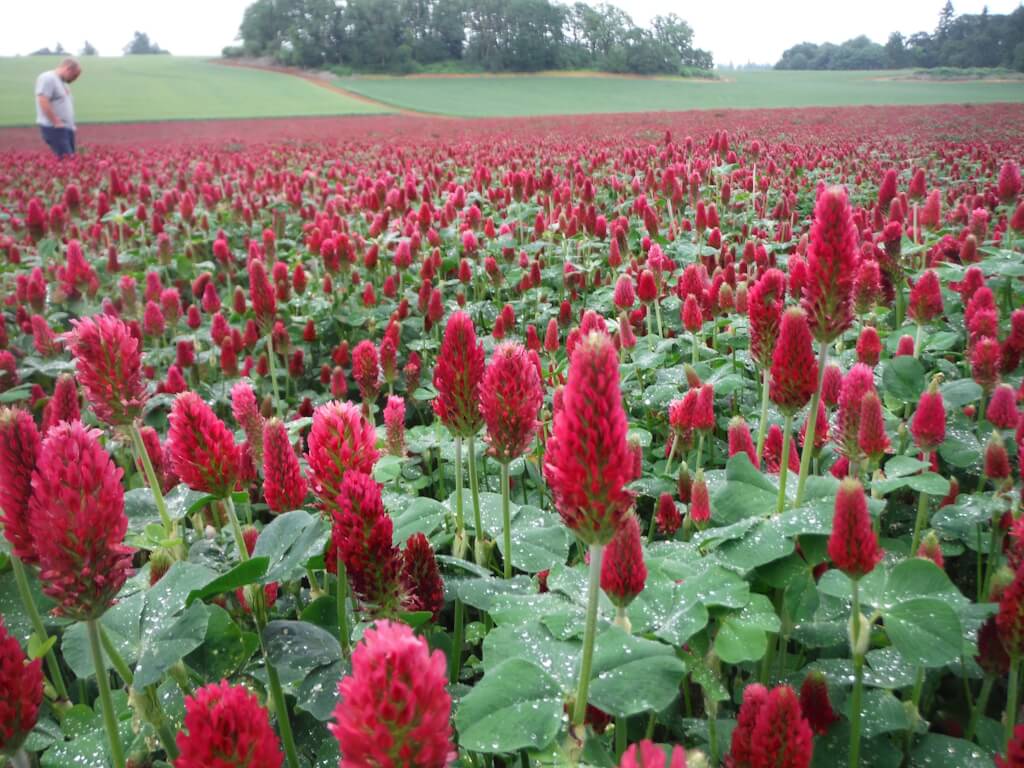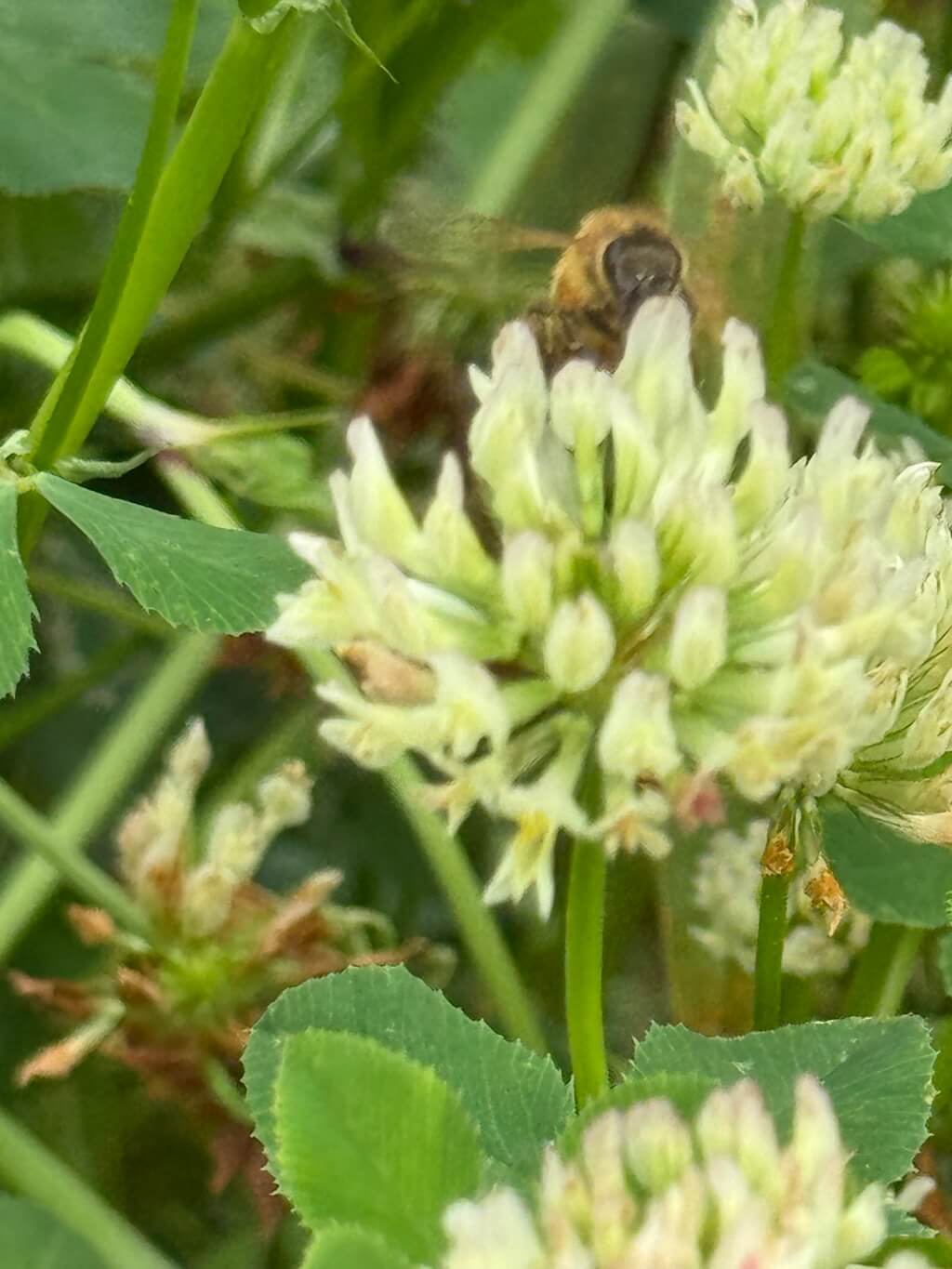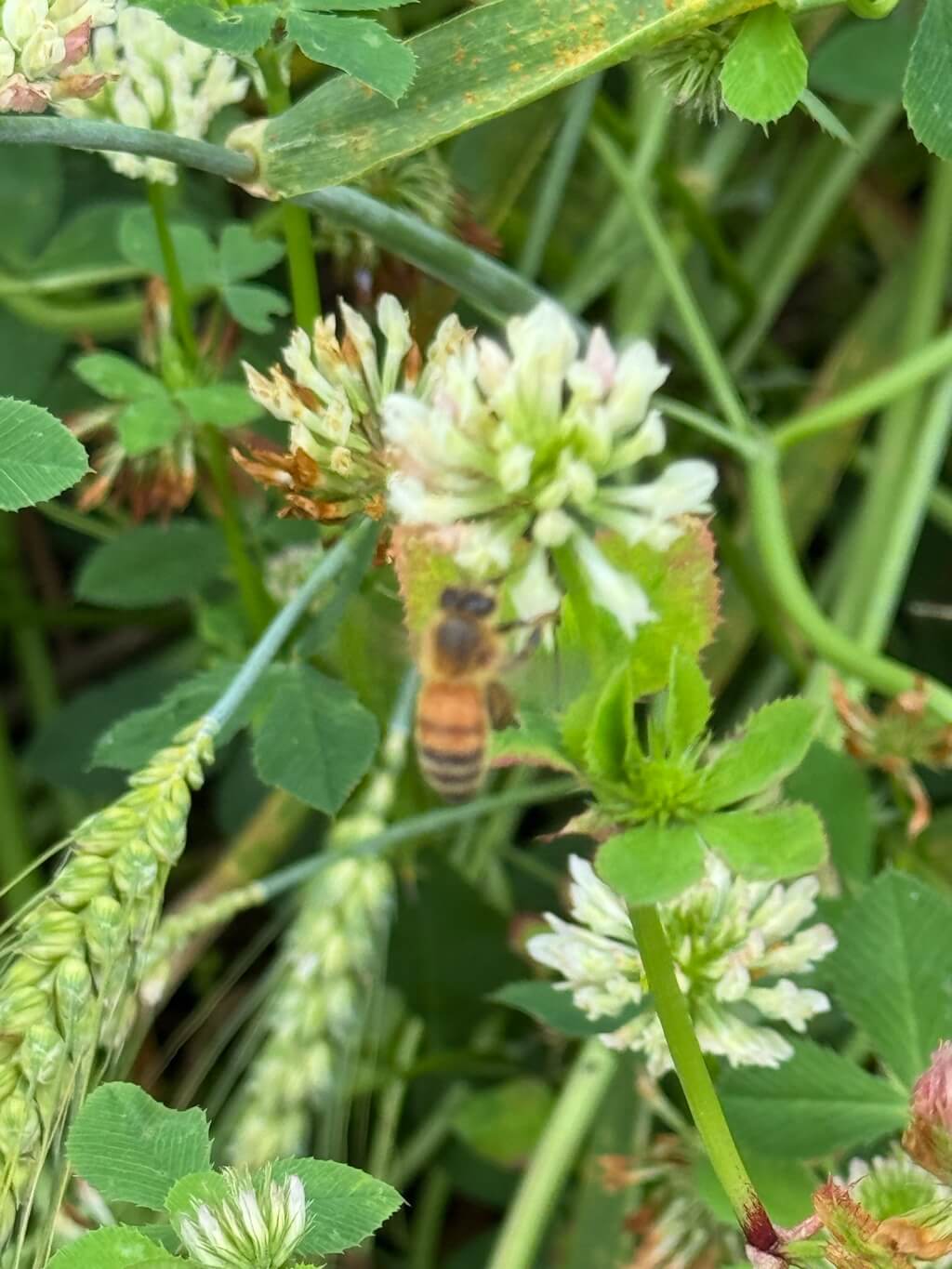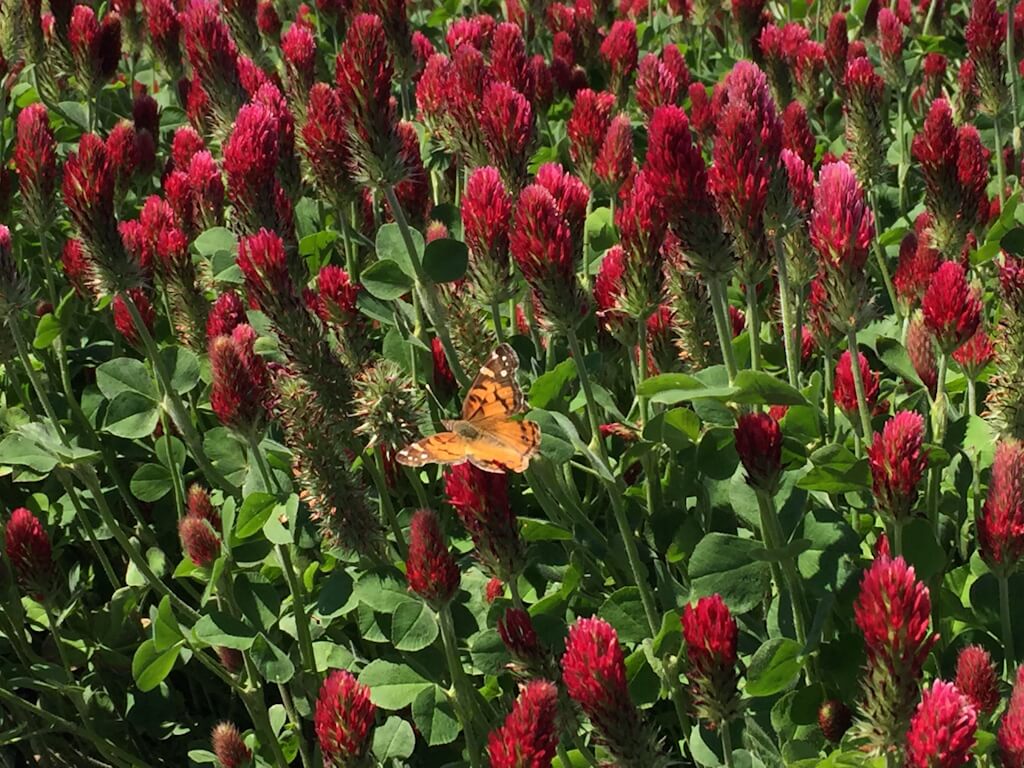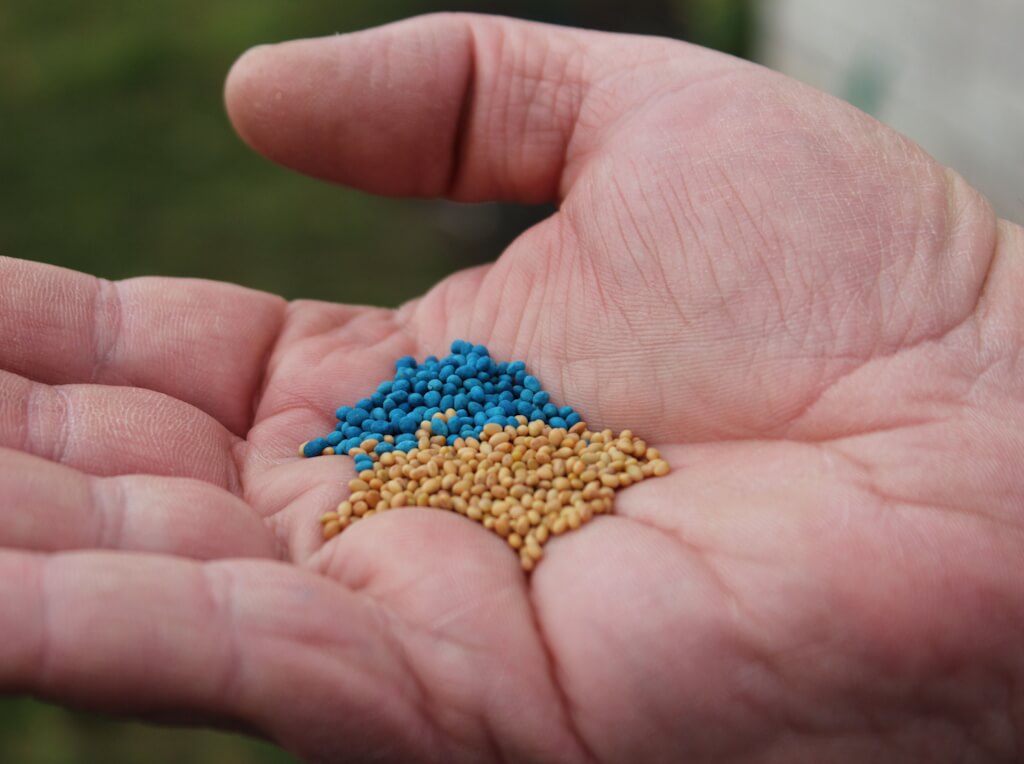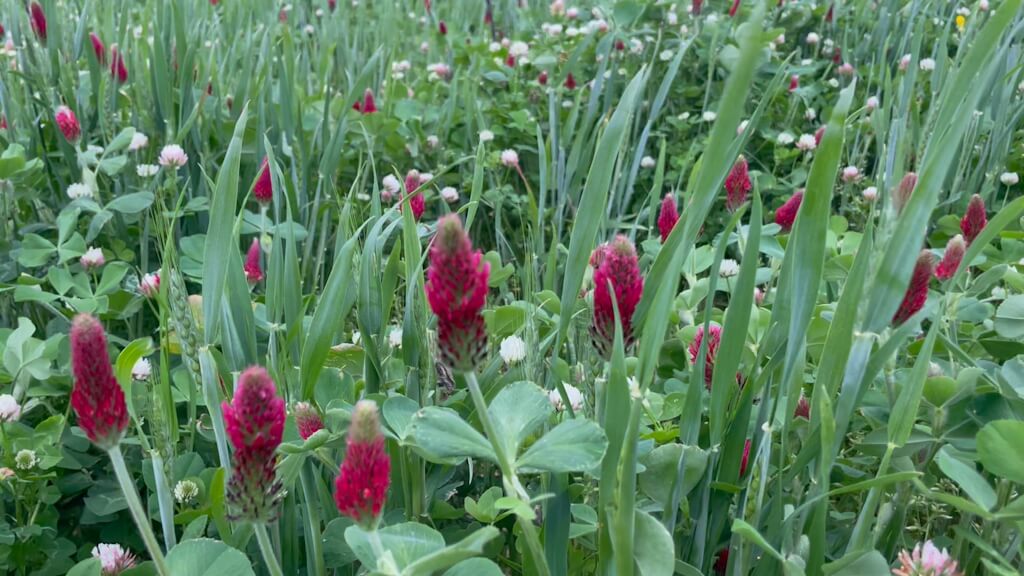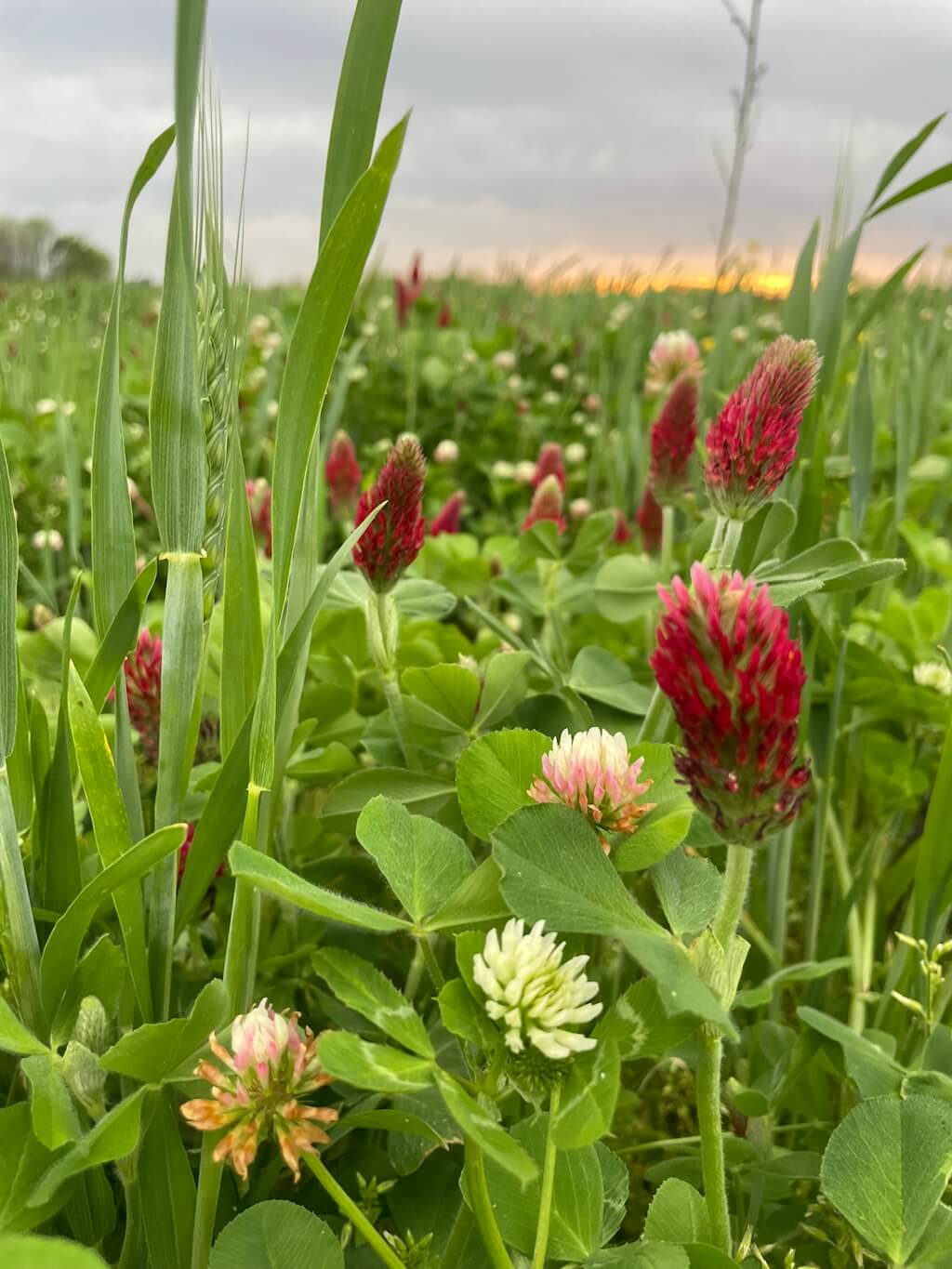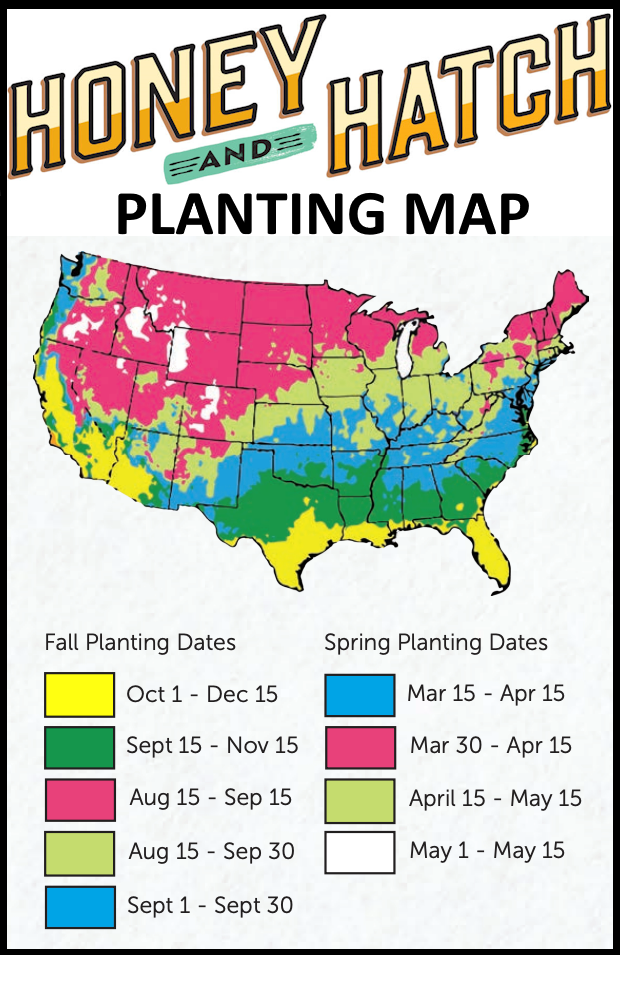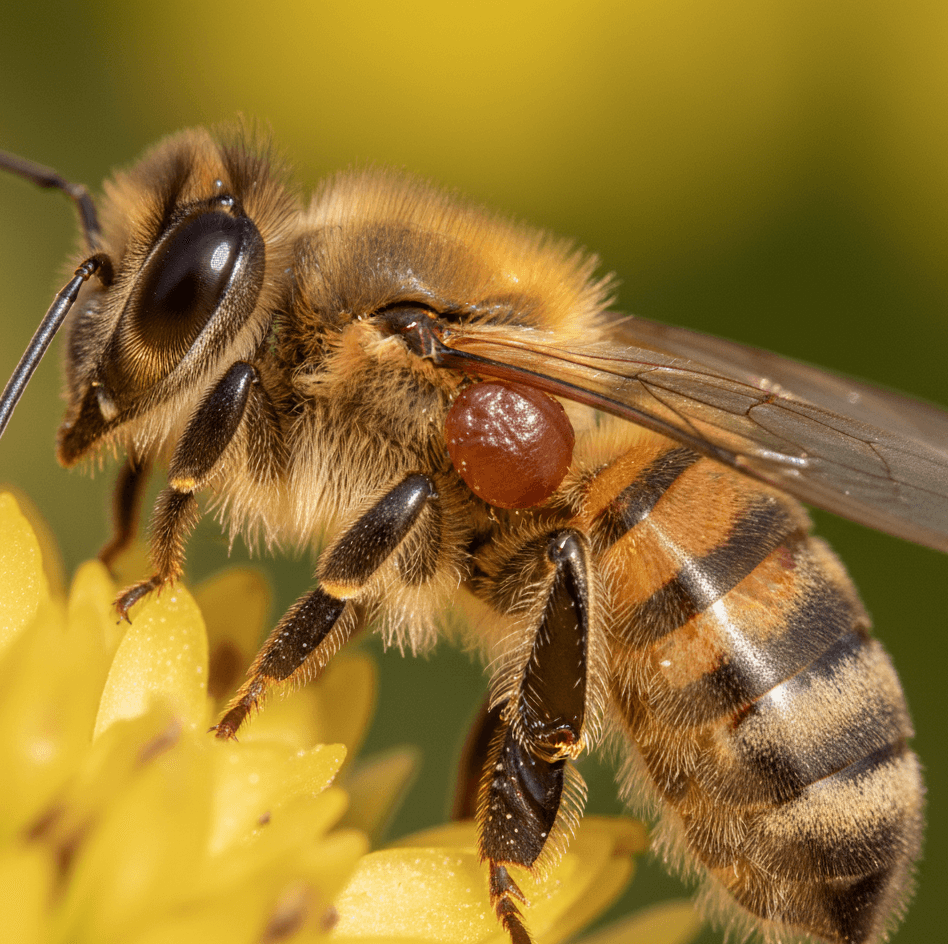
How Planting Clover Helps Bees Fight Varroa Mites Naturally | Strengthen Hives with Honey & Hatch Clover Seed
Share
🐝 How Planting Clover Helps Bees Fight Varroa Mites Naturally
The Tiny Threat Bringing Down Giant Colonies
If you’ve ever seen a honeybee up close, you know how small and delicate these creatures are. Now imagine something even smaller, clinging to them like a parasite and draining their strength. That’s the reality of Varroa destructor mites—tiny “vampires” that have become the single greatest threat to honeybees worldwide.
Beekeepers lose 30–40% of colonies annually in many regions, often due to these mites. They weaken bees, spread deadly viruses, and leave hives too fragile to survive the winter or pollinate our crops. But here’s the good news: there are natural, sustainable solutions—and one of them begins with what you plant.
Why Traditional Treatments Fall Short
For decades, chemical miticides were the frontline defense against Varroa. They can temporarily suppress mite populations, but mites quickly adapt, developing resistance. Worse, treatments can contaminate wax, harm bees, and leave residues in honey.
That’s why many beekeepers and researchers are turning toward natural Varroa control methods that strengthen colonies from the inside out—focusing on nutrition, immunity, and environmental balance.
Smarter, Sustainable Strategies to Combat Varroa
1. Breed Mite-Resistant Bees
Some honeybee strains naturally resist Varroa mites through grooming, hygienic brood removal, or shorter brood cycles. Breeding from locally adapted queens helps create stronger, more resilient colonies.
2. Use Integrated Pest Management (IPM)
IPM combines multiple techniques—screened bottom boards, drone brood removal, brood breaks, and careful monitoring—to keep mite populations below harmful levels without relying on chemicals alone.
3. Support Bees with Better Nutrition
Healthy bees fight infection and stress more effectively. Just as balanced diets strengthen our immune systems, diverse forage strengthens bees’. This is where clover becomes a game-changer.
🌸 Why Clover is a Natural Ally for Bees
Few plants offer as much benefit to pollinators as clover. It’s rich in nectar and pollen, improves soil health, and provides continuous forage that supports bee immunity and hive strength.
- Rich nectar and pollen → Boosts energy and immune health
- Extended bloom → Feeds bees during seasonal gaps
- Nitrogen fixation → Builds healthier, regenerative soil
- Low maintenance → Thrives in lawns, gardens, and fields
When clover is abundant, bees spend less energy foraging and gain steady nutrition. The result? Stronger hives that can better resist Varroa pressure and disease.
🌿 The Honey & Hatch Beekeeper’s Blossom Advantage
If you’re ready to help your bees fight mites naturally, start with premium clover seed. Our Beekeeper’s Blossom Clover Mix was designed specifically for pollinator health and hive resilience.
- 🌼 Balanced blend of white, red, and intermediate clovers
- 🐝 Provides continuous nectar and pollen through the season
- 🌾 Enhances soil and plant diversity for long-term regeneration
- 💛 Trusted by homesteaders, gardeners, and professional beekeepers
Plant it near hives, in pastures, or along garden edges—and watch your pollinators thrive.
👉 Shop Beekeeper’s Blossom Premium Clover Mix
🌻 How You Can Help the Movement
For Beekeepers
- Plant clover near your apiaries to improve bee nutrition
- Integrate forage diversity into IPM programs
- Choose regionally adapted, mite-resistant queens
For Gardeners & Urban Growers
- Replace turf grass with pollinator-friendly clover lawns
- Plant mixes of clover, wildflowers, and herbs
- Educate neighbors—small patches add up to thriving pollinator corridors
For Conservationists & Farmers
- Support regenerative practices that enrich soil and biodiversity
- Use clover cover crops to cut fertilizer needs and feed pollinators
- Partner with local beekeepers to strengthen regional hive health
🐝 FAQs: Natural Varroa Control & Bee Health
What is the most natural way to control Varroa mites?
Use non-chemical strategies like IPM, brood breaks, drone brood removal, and boosting bee nutrition through forage diversity such as clover plantings.
Does planting clover really help bees fight mites?
Yes—indirectly. Nutrient-rich pollen and nectar from clover strengthen bees’ immune systems, helping them resist viruses associated with Varroa infestations.
What’s the best clover to plant for pollinators?
White clover (Trifolium repens) and intermediate varieties bloom across seasons and attract a wide range of honeybees and native pollinators.
Can planting clover also improve soil health?
Absolutely. Clover naturally fixes nitrogen, improves soil structure, and reduces fertilizer dependence—supporting regenerative farming and gardening.
Do wild pollinators benefit too?
Yes. Clover provides forage for bumblebees, butterflies, solitary bees, and beneficial insects alongside honeybees.
💛 A Call to Action: Plant Clover, Grow Hope
Varroa mites may be the biggest challenge bees face today, but they’re not unbeatable. By combining smart management, better nutrition, and something as simple as planting clover, we can give pollinators the strength to survive and thrive.
Every patch of clover—whether in a city lawn, rural pasture, or backyard garden—is a step toward healthier hives and a more resilient planet.
🌼 Plant Beekeeper’s Blossom. Support Pollinators. Regenerate the Land.

